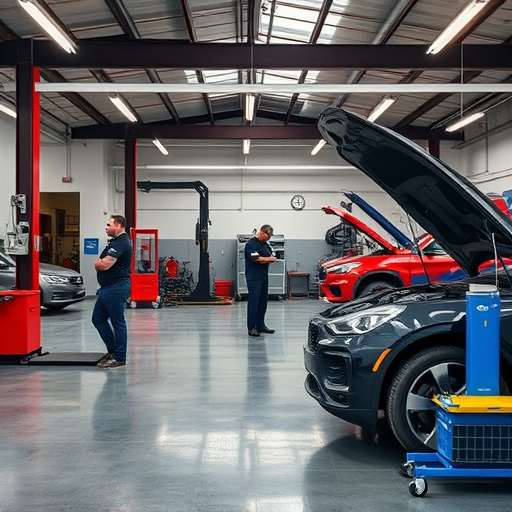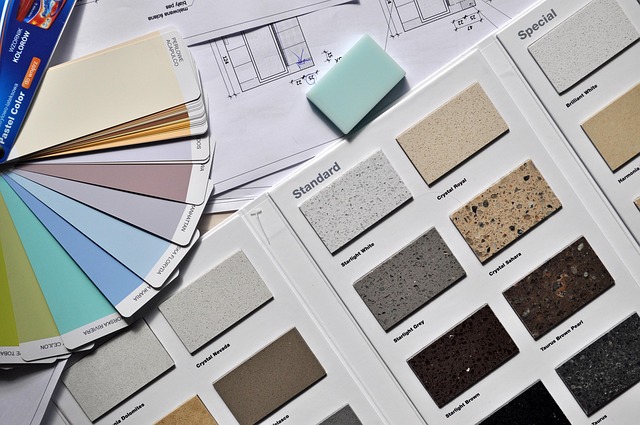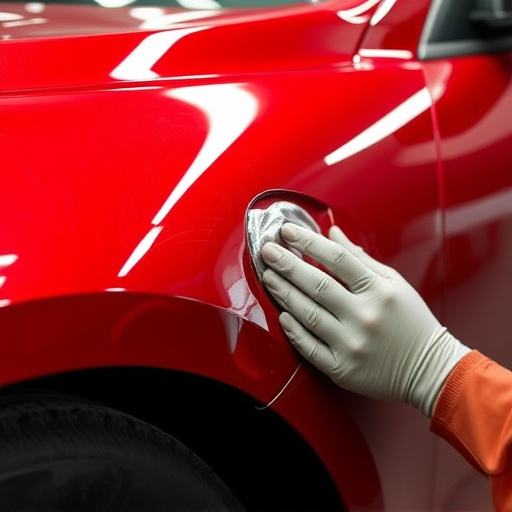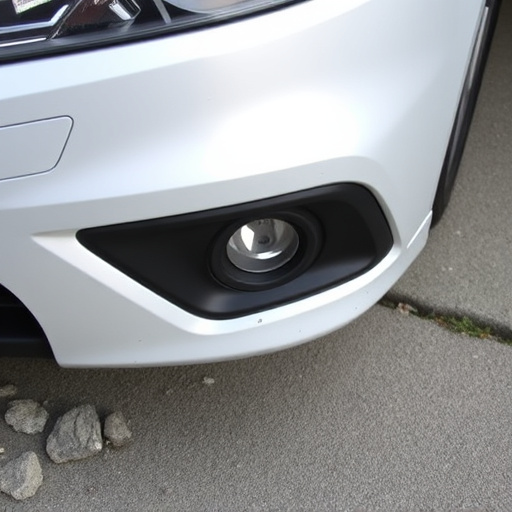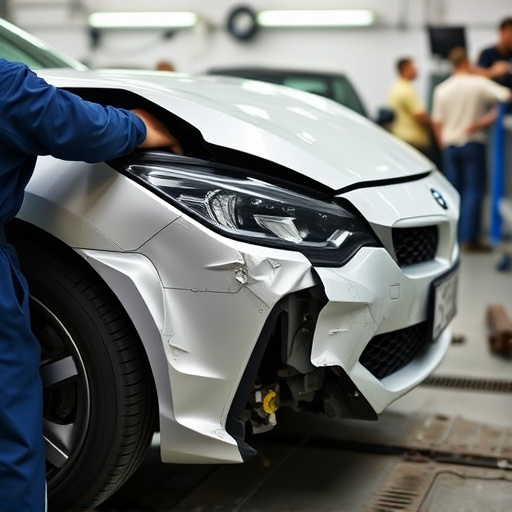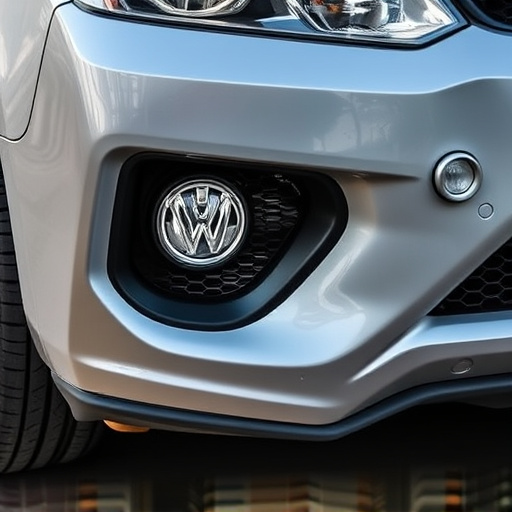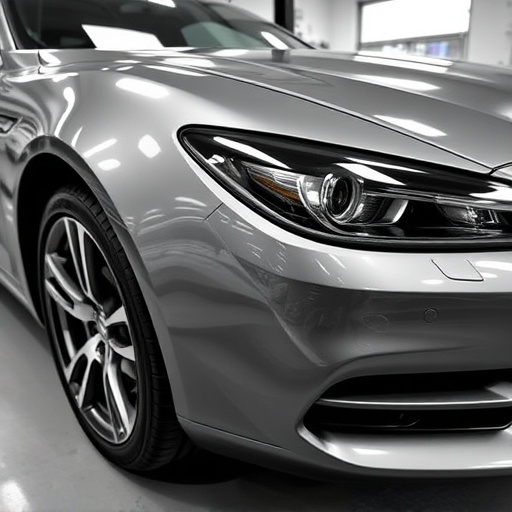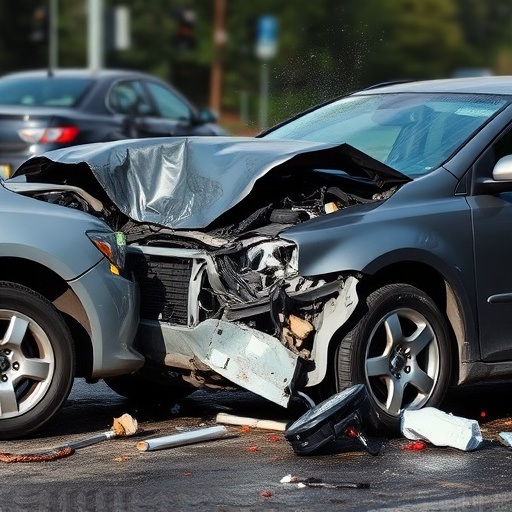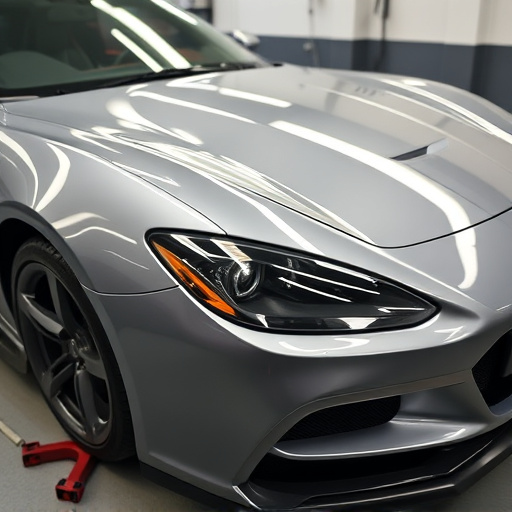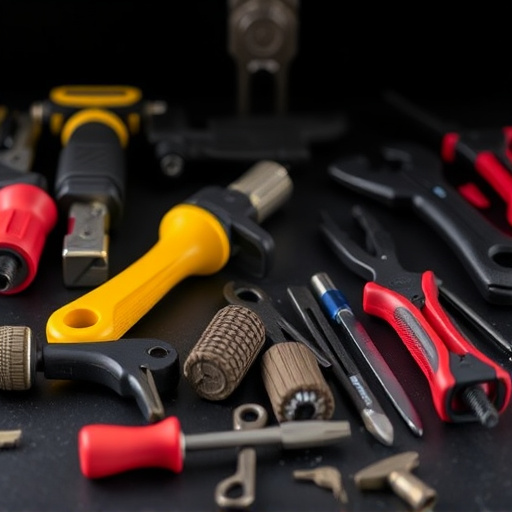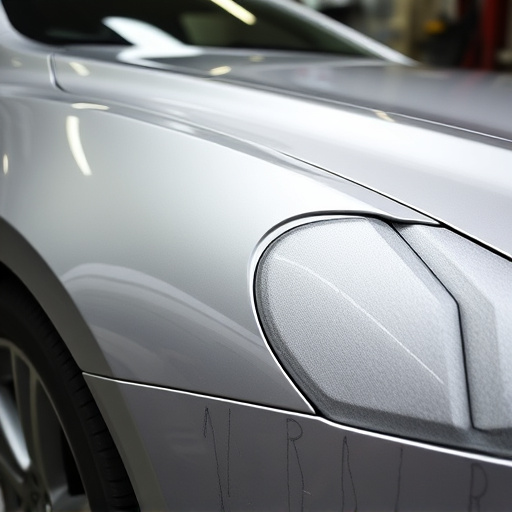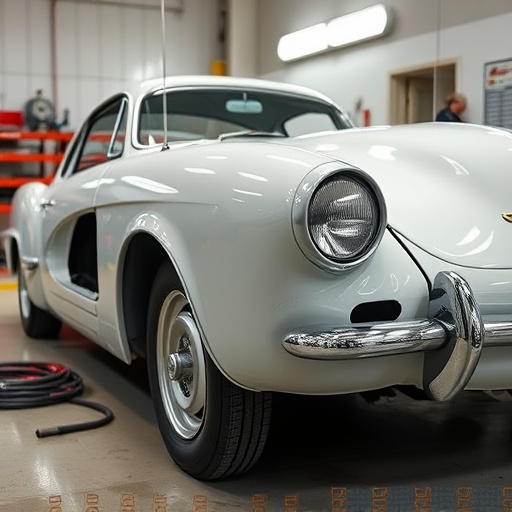Corrosion, driven by moisture, oxygen, and elements like salt water or acids, degrades aluminum and steel panels over time, impacting structural integrity and aesthetics. While aluminum is lightweight and durable, it's susceptible to corrosion from reactive surfaces, while steel rusts in harsh conditions. Effective corrosion protection procedures are crucial for preventing these issues, ensuring the longevity of panels used in construction and automotive sectors. These processes involve meticulous cleaning, applying appropriate primers (zinc-rich for steel, specialized for aluminum), and high-quality tailored paint or coatings to safeguard against rust and decay. Advanced techniques like electrostatic spraying offer superior durability, revolutionizing corrosion protection for diverse applications.
Corrosion is a silent yet destructive force that can significantly impact the longevity and aesthetics of aluminum and steel panels. This article explores comprehensive corrosion protection procedures essential for preserving these materials in various environments. We delve into the understanding of corrosion, its effects on metal surfaces, and practical techniques to mitigate it. From traditional methods to advanced coatings, discover strategies to enhance durability, ensuring your aluminum and steel panels stand the test of time.
- Understanding Corrosion and Its Impact on Aluminum and Steel Panels
- Essential Corrosion Protection Procedures for Longevity
- Advanced Techniques and Coatings for Enhanced Durability
Understanding Corrosion and Its Impact on Aluminum and Steel Panels
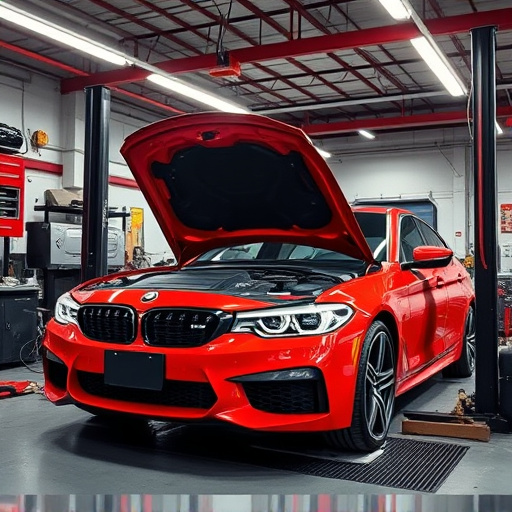
Corrosion is a natural process that occurs when metal surfaces interact with elements present in the environment, primarily moisture and oxygen. Over time, this interaction can lead to the degradation of aluminum and steel panels, compromising their structural integrity and aesthetic appeal. Aluminum, known for its lightweight nature and durability, is susceptible to corrosion due to its reactive surface, especially when exposed to salt water or acidic environments. Steel, on the other hand, while more resistant to corrosion than aluminum, still faces challenges when subjected to harsh conditions, such as high humidity or industrial pollution.
The impact of corrosion can be severe for both materials. In the case of aluminum panels, corrosion may start as small pits or spots and eventually lead to widespread pitting and peeling, reducing the panel’s lifespan and requiring costly replacement in collision repair centers or shops offering vehicle repair services. For steel panels, rust formation not only weakens the structure but also causes unsightly discoloration. Prompt and effective corrosion protection procedures are essential to mitigate these issues. Understanding the specific needs of aluminum and steel in terms of corrosion prevention is a critical step in maintaining the quality and longevity of panels used in various applications, from building facades to automotive repairs.
Essential Corrosion Protection Procedures for Longevity
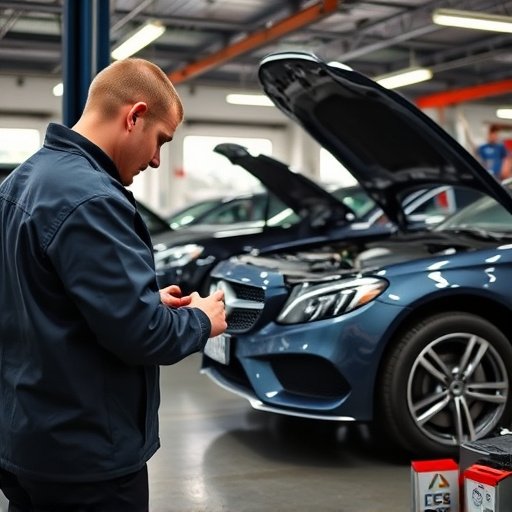
Corrosion protection procedures are essential for maintaining the longevity of both aluminum and steel panels, whether they’re part of a building’s exterior or used in automotive applications like car repair services and auto glass repair. The first step involves cleaning the surfaces thoroughly to remove any dirt, grease, or debris that could impede the bonding of protective coatings. This is crucial as even the smallest contaminants can lead to accelerated corrosion over time.
After cleaning, a primer should be applied to create a barrier between the metal and the environment. Primers act as an anchor for subsequent coatings, enhancing the overall durability of the protection. For steel panels, zinc-rich primers are often recommended due to their superior corrosion resistance, while aluminum panels may require specialized primers designed to resist the element’s unique corrosive properties. This is followed by multiple coats of high-quality, durable paint or coating, tailored to the specific metal type and environmental conditions, ensuring long-lasting protection against rust and decay—a key aspect in preserving structures and vehicles alike, including those needing vehicle dent repair.
Advanced Techniques and Coatings for Enhanced Durability
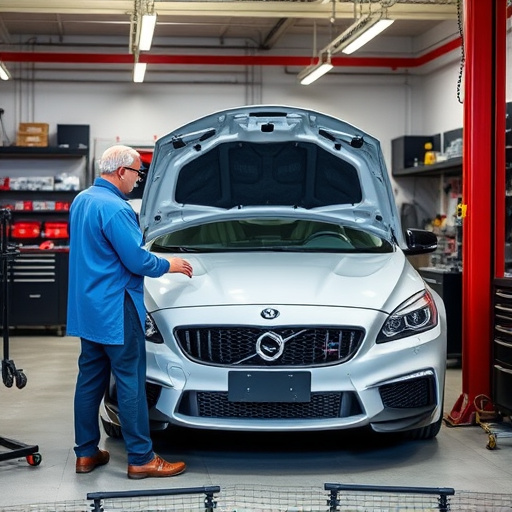
In the quest for extended durability in corrosion protection procedures, advanced techniques and specialized coatings have emerged as game-changers in the industry, particularly for aluminum and steel panels. These cutting-edge solutions go beyond traditional methods, offering enhanced protection against the damaging effects of rust and corrosion. One such innovative approach involves the application of electrostatic spraying, which ensures a uniform and seamless coat, filling even the smallest gaps and crevices on the panel’s surface. This method is particularly effective in auto maintenance and auto body work, where meticulous detail is paramount.
Additionally, modern coatings are designed to withstand harsh environmental conditions, providing long-lasting protection for exterior panels. These advanced formulations often incorporate unique properties such as excellent adhesion, flexibility, and resistance to ultraviolet (UV) rays, ensuring that the panels remain in pristine condition over time. This is especially beneficial for auto glass repair and other applications where structural integrity and visual appeal are paramount. By leveraging these sophisticated techniques and materials, manufacturers and professionals can significantly extend the lifespan of aluminum and steel panels, underscoring the importance of corrosion protection procedures in diverse sectors.
Aluminum and steel panels, renowned for their versatility and aesthetic appeal, require meticulous corrosion protection procedures to ensure longevity in diverse environments. By understanding the unique vulnerabilities of each material, implementing essential practices like proper surface preparation and coating selection, and exploring advanced techniques such as innovative coatings and specialized treatments, you can significantly enhance the durability of these panels. Adopting these corrosion protection procedures is pivotal for maintaining structural integrity, preserving aesthetics, and minimizing maintenance costs over time.

